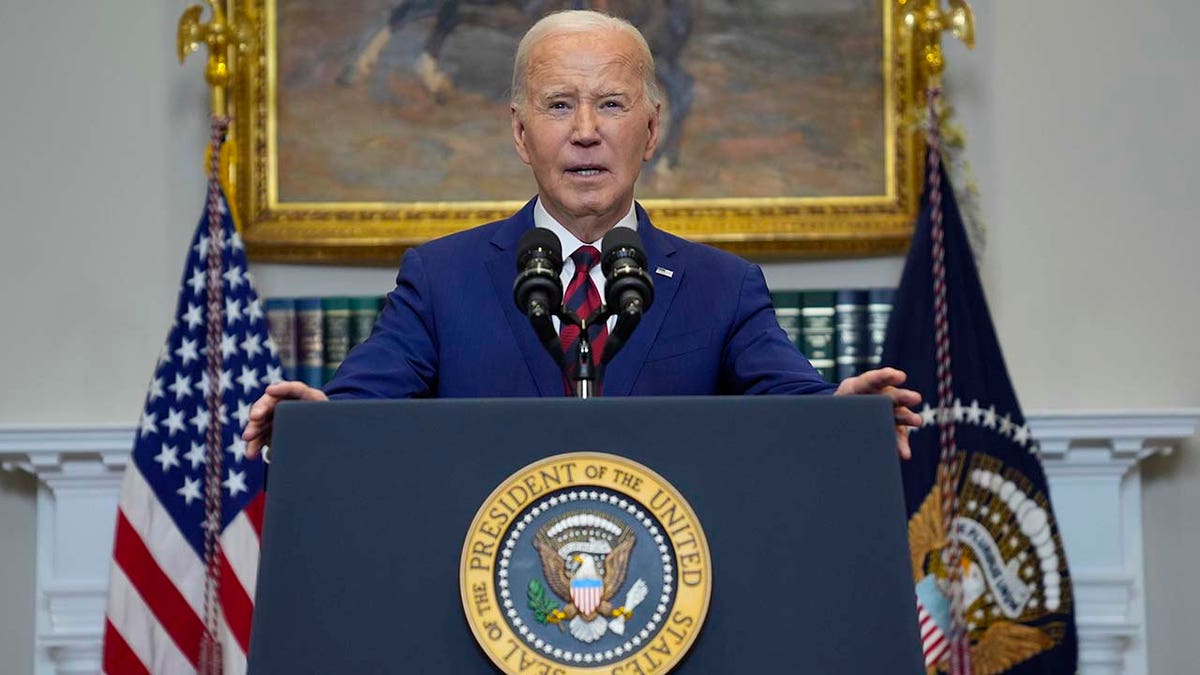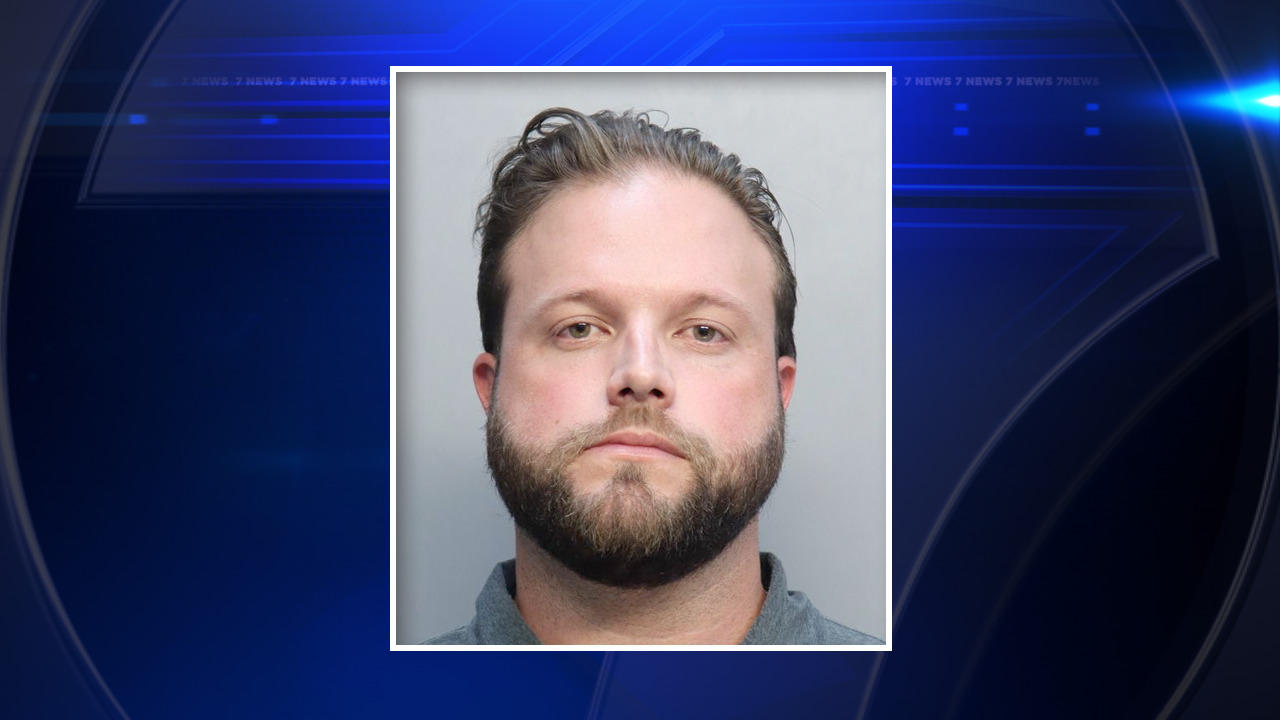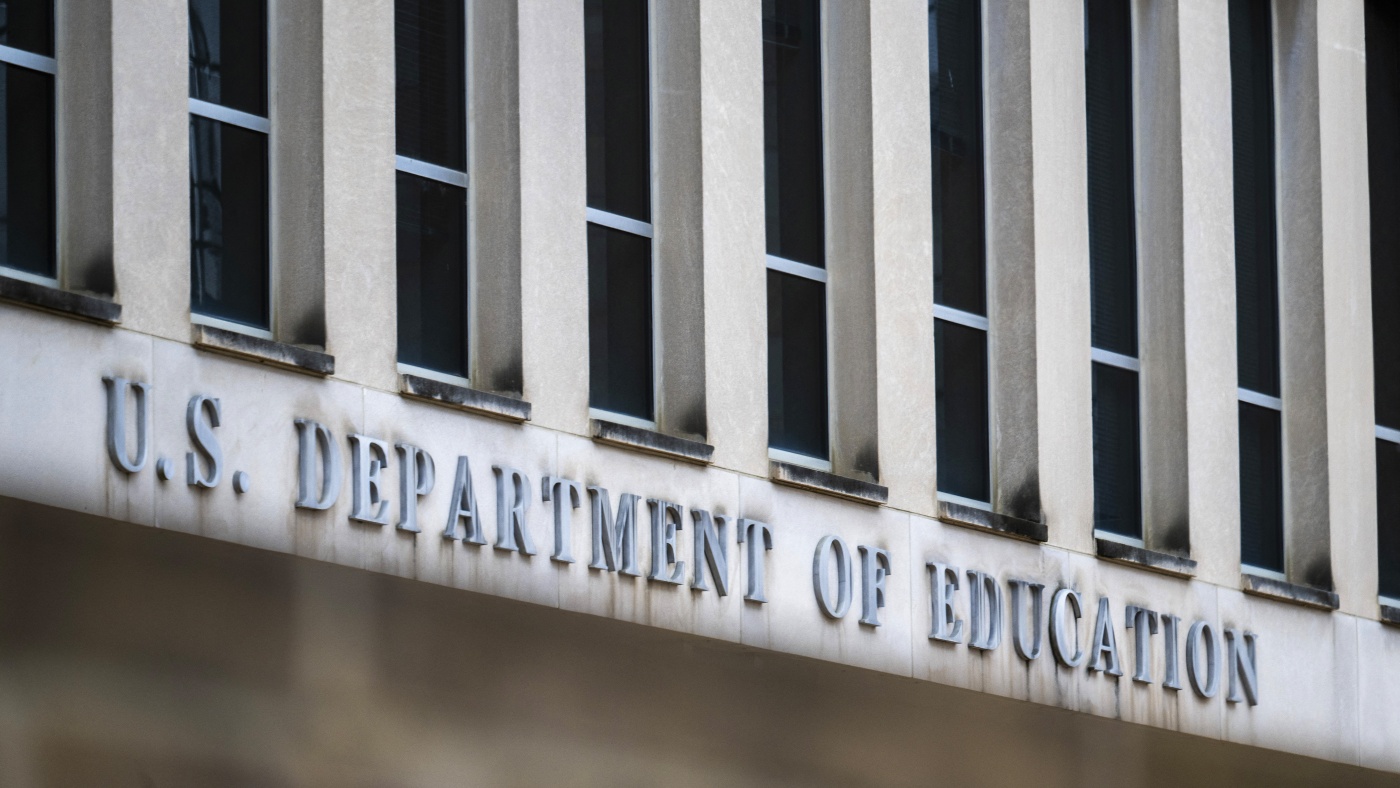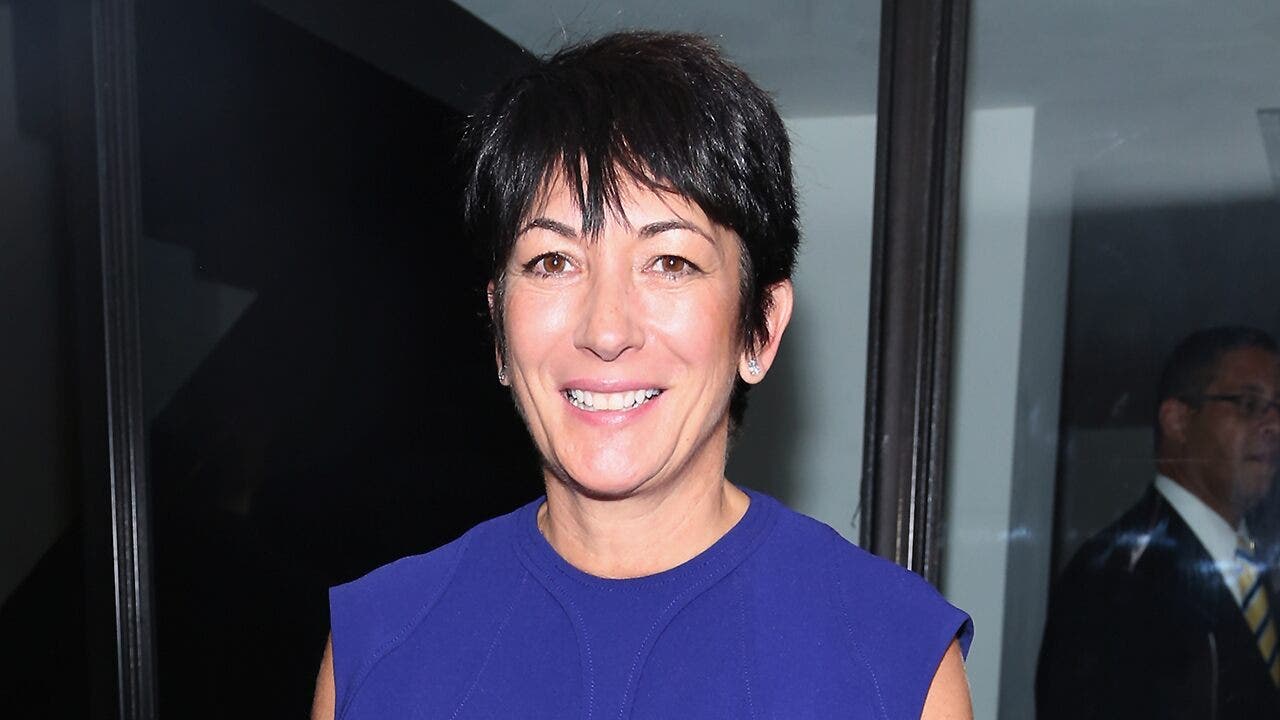Politics
U.S. officials used Signal to share war plans. What is the messaging app and is it safe?

Senior government officials mistakenly invited the editor in chief of the Atlantic to a group chat on the messaging app Signal, where the focus of conversation was U.S. airstrikes against rebel groups in Yemen. The app’s use by high-ranking national security officials has raised the question: Just how secure is Signal anyway?
On March 11, Jeffrey Goldberg of the Atlantic was accidentally invited by the Trump administration’s national security advisor to connect on Signal. In the following days, Goldberg was added to a group chat that spoke of “operational details of forthcoming strikes on Yemen, including information about targets, weapons the U.S. would be deploying and attack sequencing,” according to his reporting.
Signal is a free app that cybersecurity experts consider to be one of the most secure messaging services because of its end-to-end encryption.
Simply put, text messages or calls are seen only by you, the sender and whoever is in your Signal group chat.
“We can’t read your messages or listen to your calls, and no one else can either,” the Signal website states.
If you’re using only your smartphone’s default messaging app, such as Apple’s iMessage or Google Messages, there is a chance your messages won’t be secure. This happens when you’re an iPhone user who texts an Android user, because you’re messaging from different platforms. Messages are end-to-end encrypted only if both people are using the same app.
Signal also touts user protection because it doesn’t use ads and doesn’t track user data. It collects only minimal user data, such as your phone number, the date you joined Signal and the last date you logged on to the app.
Aside from top government officials, journalists and advocates use the app, but it’s not limited to these groups of people.
With Signal in the news, experts are weighing in on whether the average user should consider it as an option for your everyday communication.
Why should you care about encrypted messaging?
Encrypted messaging “protects more than national secrets; it protects everyday privacy,” said Vahid Behzadan, assistant professor of cybersecurity and networks, data and computer science at the University of New Haven.
Most people unknowingly share sensitive information via text, such as personal addresses, passwords for Netflix and other accounts, or photos, according to Iskander Sanchez-Rola, director of artificial intelligence and innovation for Norton.
Encrypted apps ensure your messages are seen only by the person you intended to reach — and not third parties. That also means your “internet service provider or any potential malicious actors on your network won’t be able to see them either,” Sanchez-Rola said.
Cybercriminals are paying attention to your messages.
In December the FBI and the Cybersecurity and Infrastructure Security Agency stated that hackers affiliated with China’s government, called Salt Typhoon, waged an attack on commercial telecommunications companies to steal users’ data and prompted federal authorities to recommend everyone use only end-to-end encrypted communications.
“Ninety percent of all cyberthreats now originate from scams and social engineering threats — a figure that has almost tripled since 2021,” Sanchez-Rola said. “Everyday activities like forwarding messages or even clicking links and attachments can open the door to risks if your information isn’t properly protected.”
By using a messaging app that ensures end-to-end encryption, Behzadan said, you’re protecting yourself from data breaches and identity theft, and corporate tracking and targeted advertising, and ensuring confidentiality in professional or legal communications, freedom from surveillance or unauthorized access, and insurance against potential policy or government changes that may erode privacy rights.
“In short, encryption helps preserve digital dignity and autonomy in an increasingly connected world,” he said.
How is Signal a standout from other messaging apps when it comes to privacy?
All communications (messages, calls and video chats) are end-to-end encrypted by default, so you don’t have to go out of your way to ensure it’s a feature,” Behzadan said.
Unlike many platforms, Signal does not store metadata about who users communicate with, when or where.
“Its encryption protocol, the open-source Signal Protocol, is widely regarded as the gold standard in secure messaging and is even used by WhatsApp and Facebook Messenger for certain chats,” he said.
Signal’s nonprofit structure also sets it apart: The organization doesn’t monetize user data, which reduces incentives for surveillance or advertising-driven features.
Sanchez-Rola added a few more features that amplify securing your privacy:
- Screenshot blocker. This prevents malicious apps on your phone from accessing screenshots, but doesn’t prevent other people from taking screenshots of your conversations.
- Disappearing messages. Messages automatically delete after a set time, configurable from five seconds to four weeks, after they’ve been read. So even if a malicious app gains access to your phone, it won’t be able to retrieve messages that have been deleted.
- Single-view media. This allows you to send photos, videos and voice messages that are automatically deleted from the recipient’s device after they’ve been opened once.
- Incognito keyboard. This prevents third-party keyboard apps from potentially collecting data about your typing, offering an extra layer of privacy, especially when sending sensitive information.
- Usernames versus phone numbers. You can talk to people on Signal without needing to know their phone number — just by using their Signal username. This provides an extra layer of privacy.
How effective is Signal in protecting your privacy?
Signal’s terms of service state you “are responsible for keeping your device and your Signal account safe and secure.”
“The effectiveness of encryption isn’t just about the technology; it also depends on how individuals use it. Encryption works best as part of a larger cybersecurity strategy,” Sanchez-Rola said.
Behzadan shared a few important best practices. They include:
- Enabling disappearing messages for sensitive chats.
- Verifying safety numbers with trusted contacts.
- Setting a strong PIN or enabling biometric lock.
- Keeping the app and device updated.
- Avoiding screenshots or storing sensitive info on unsecured devices.
“The recent incident involving U.S. officials underscores this: Even the most secure technology can’t prevent human error, like adding the wrong person to a group chat,” Behzadan said. “In cybersecurity, the weakest link is often the human element.”
What are other encrypted messaging apps?
While Signal is the top recommendation among security experts, other apps offer encrypted messaging with varying trade-offs:
- WhatsApp: Uses the Signal Protocol but is owned by Meta and collects more metadata.
- Threema: A Swiss-based app that doesn’t require a phone number and focuses on privacy, though it has a smaller user base.
- Element (Matrix protocol): A decentralized and open-source option, popular among tech-savvy communities.
- Wickr: Used in enterprise and government settings and now owned by Amazon.
The best choice depends on your specific needs, your threat model and what platforms your contacts use, because encryption works only if both parties use the same secure platform.

Politics
Video: Trump’s Pivot on Ukraine

new video loaded: Trump’s Pivot on Ukraine
Recent episodes in Latest Video
Whether it’s reporting on conflicts abroad and political divisions at home, or covering the latest style trends and scientific developments, Times Video journalists provide a revealing and unforgettable view of the world.
Whether it’s reporting on conflicts abroad and political divisions at home, or covering the latest style trends and scientific developments, Times Video journalists provide a revealing and unforgettable view of the world.
Politics
Constitutional scholar uses Biden autopen to flip Dems’ ‘democracy’ script against them: ‘Scandal’

NEWYou can now listen to Fox News articles!
Constitutional legal scholar Randy Barnett admonished Democrats’ rhetoric claiming democracy is at risk under the Trump administration when “the biggest constitutional scandal in US history” played out under the Biden administration with the use of the autopen.
“For all the talk of a ‘constitutional crisis’ or threats to ‘our democracy’ having the executive branch systematically run by unknown subordinates of a mentally incompetent president is the biggest constitutional scandal in US history – it’s called into question the legality of official acts done in his name but without proper authority,” Barnett posted to X Monday.
“Southern secession was a ‘constitutional crisis,’” Barnett added in a follow-up message Tuesday. “This is a constitutional scandal.”
Barnett, a Georgetown University law professor who serves as the director of the Georgetown Center for the Constitution, was referring to an interview former President Joe Biden conducted with the New York Times defending his use of an autopen. Biden said he orally approved a long list of clemency and pardon actions at the end of his tenure, but that his aides used the autopen to officiate the actions.
BIDEN CHIEF OF STAFF REPORTEDLY GAVE APPROVAL FOR AUTOPEN PARDONS ON FINAL DAY IN OFFICE
Former President Joe Biden spoke to the New York Times in July to defend his administration’s use of the autopen. (Alex Brandon/The Associated Press)
Amid the Biden autopen controversy, Democratic lawmakers and left-wing media pundits have continued slamming Trump as a threat to democracy – which was a common talking point during the election cycle – and claiming his actions as president, such as deporting illegal immigrants and revoking visa privileges for some foreign students, have thrown the U.S. into a constitutional crisis.
Biden told the Times that he was aware of every pardon ahead of leaving office in 2024, which included clemency and commutation actions related to 2,500 nonviolent drug offenders in his final weeks in office alone.
“I made every decision,” Biden told the Times in a phone interview earlier in July that was published Sunday. He added that staff used the autopen for the pardons and commutations “because there were a lot of them.”
“Mr. Biden did not individually approve each name for the categorical pardons that applied to large numbers of people, he and aides confirmed,” the Times reported. “Rather, after extensive discussion of different possible criteria, he signed off on the standards he wanted to be used to determine which convicts would qualify for a reduction in sentence.”
BIDEN DEFENDS CONTROVERSIAL AUTOPEN USE FOR MASS CLEMENCY DECISIONS IN NYT INTERVIEW: ‘A WHOLE LOT OF PEOPLE’
Biden also pardoned Anthony Fauci, former chief medical advisor to the president; former Chairman of the Joint Chiefs of Staff Mark Milley; and members of the House committee that investigated the Jan. 6, 2021, Capitol riots. Less than half an hour before Trump became president, Biden also pardoned members of his family, including his brothers James B. Biden and Francis W. Biden, sister Valerie Biden Owens and brother-in-law John T. Owens.

An example of an autopen inking a signature on a piece of paper. Former President Joe Biden has come under scrutiny for his administration’s use of an autopen. (The Associated Press)
Autopen signatures are produced by a machine, as opposed to an authentic, handwritten signature.
The conservative Heritage Foundation’s Oversight Project first investigated the Biden administration’s use of an autopen earlier in 2025 and found that the same signature was on a bevvy of executive orders and other official documents, while Biden’s signature on the document announcing his departure from the 2024 race varied from the apparent machine-produced signature.
The use of the autopen follows years of mounting concern that Biden’s mental acuity and health were deteriorating, which hit a fever pitch during the 2024 campaign cycle following the president’s disastrous debate performance against Trump. Biden ultimately dropped out of the race on July 21, 2024, and endorsed then-Vice President Kamala Harris to run in his place.

President Donald Trump has repeatedly slammed the Biden administration for its use of an autopen for official presidential actions, calling it a scandal. (Alex Brandon/The Associated Press)
Since reclaiming the Oval Office, Trump has balked at his predecessor’s use of the autopen, claiming Biden’s staff allegedly used the pen to sign off on presidential actions unbeknownst to Biden.
“I guarantee you he knew nothing about what he was signing, I guarantee you,” Trump said Monday when asked about Biden’s interview with the Times.
TRUMP RESPONDS TO BIDEN DISMISSAL OF AUTOPEN PROBE, SAYS HE DIDN’T KNOW ‘WHAT WAS GOING ON’
Biden’s interview follows Trump sending a memo to the Department of Justice in June directing Attorney General Pam Bondi to investigate whether Biden administration aides conspired to deceive the public about his mental state, and simultaneously used an autopen to sign key presidential actions.

Former President Joe Biden said President Donald Trump and Republicans are “liars” for claiming he was incapacitated as president and that his aides used the pen for official presidential actions. (Evan Vucci/The Associated Press)
TRUMP ORDERS ATTORNEY GENERAL TO INVESTIGATE BIDEN’S AUTOPEN USE AMID COGNITIVE DECLINE CONCERNS
“In recent months, it has become increasingly apparent that former President Biden’s aides abused the power of Presidential signatures through the use of an autopen to conceal Biden’s cognitive decline and assert Article II authority,” Trump wrote in his letter. “This conspiracy marks one of the most dangerous and concerning scandals in American history. The American public was purposefully shielded from discovering who wielded the executive power, all while Biden’s signature was deployed across thousands of documents to effect radical policy shifts.”
Biden said in his New York Times interview that Trump and other Republicans are “liars” for claiming he was incapacitated as president and that his aides used the pen for official presidential actions.
CLICK TO GET THE FOX NEWS APP
“They’re liars. They know it. They know, for certain. I mean, this is – look, what they, they’ve had a pretty good thing going here. They’ve done so badly. They’ve lied so consistently about almost everything they’re doing. The best thing they can do is try to change the focus and focus on something else. And this is a – I think that’s what this is about,” he said.
Politics
Can the courts stop Trump's mass immigration arrests around L.A.? Here is what we know

There have been numerous legal challenges to President Trump’s immigration sweeps across California that have led to at least 3,000 arrests.
But one lawsuit has the potential to dramatically alter the policy.
The ruling
A coalition of civil rights groups and private attorneys sued the federal government, challenging the cases of three immigrants and two U.S. citizens swept up in chaotic arrests that have sparked widespread protests since early June.
On Friday, U.S. District Judge Maame Ewusi-Mensah Frimpong, an appointee of President Biden, temporarily blocked federal agents in the Southland from using racial profiling to carry out immigration arrests after she found sufficient evidence that agents were using race, a person’s job or their location, and their language to form “reasonable suspicion” — the legal standard needed to detain an individual.
Frimpong ruled that using race, ethnicity, language, accent, location or employment as a pretext for immigration enforcement is forbidden by the 4th Amendment, which protects against unreasonable searches and seizures by the government.
The order covers Los Angeles, Riverside, San Bernardino, Orange, Ventura, Santa Barbara and San Luis Obispo counties.
The judge also ordered that all those in custody at a downtown detention facility known as B-18 must be given 24-hour access to lawyers and a confidential phone line.
On Monday, the administration asked a federal appeals court to stay the judge’s order blocking the roving patrols, allowing it to resume raids across the seven California counties.
“It is untenable for a district judge to single-handedly ‘restructure the operations’ of federal immigration enforcement,” the appeal argued. “This judicial takeover cannot be allowed to stand.”
What experts are saying
Legal experts say it’s hard to say just how successful the federal government will be in getting a stay on the temporary order, given the current political climate.
“This is different from a lot of the other kinds of Trump litigation because the law is so clear in the fact finding by the district court,” said Erwin Chemerinsky, dean of the UC Berkeley School of Law. “So if you follow basic legal principles, this is a very weak case for the government on appeal, but it’s so hard to predict what will happen because everything is so ideological.”
In the past, legal scholars say, it would be extremely uncommon for an appeals court to weigh in on such an order. But recent events suggest it’s not out of the realm of possibility.
Courts have backed Trump’s immigration policies in other cases.
- In June, the U.S. Supreme Court ruled in favor of allowing the federal government to deport convicted criminals to “third countries” even if they lack a prior connection to those countries.
- That same month, it also ruled 6 to 3 to limit the ability of federal district judges to issue nationwide orders blocking the president’s policies, which was frequently a check on executive power.
- In June, the 9th U.S. Circuit Court of Appeals decided to leave troops in Los Angeles in the hands of the Trump administration while California’s objections are litigated in federal court, finding the president had broad — though not “unreviewable” — authority to deploy the military in American cities. California had sued against the deployment.
It’s not an easy case for the government, said Ahilan Arulanantham, professor of practice and co-director of the Center for Immigration Law and Policy at the UCLA School of Law.
“I think one thing which makes this case maybe a little bit harder for the government than some of the other shadow docket cases is it really does affect citizens in an important way,” he said. “Obviously the immigration agent doesn’t know in advance when they come up to somebody whether they’re a citizen or a noncitizen or if they’re lawfully present or not.”
What is next?
The Frimpong ruling is now on appeal.
The plaintiffs argued in their complaint that immigration agents cornered brown-skinned people in Home Depot parking lots, at car washes and at bus stops across Southern California in a show of force without establishing reasonable suspicion that they had violated immigration laws. They allege agents didn’t identify themselves, as required under federal law, and made unlawful arrests without warrants.
Government lawyers argued in their motion that “ethnicity can be a factor supporting reasonable suspicion in appropriate circumstances — for instance, if agents are acting on a tip that identifies that ethnicity — even if it would not be relevant in other circumstances,” lawyers stated in their motion.
Attorneys said in the motion that speaking Spanish, being at a particular location or one’s job “can contribute to reasonable suspicion in at least some circumstances.”
Government lawyers said Frimpong’s injunction was a first step to placing immigration enforcement under judicial monitorship and was “indefensible on every level.” They asked the higher court to pause the order while the appeal is heard.
The government is also appealing another injunction imposed by a federal judge in the Eastern District of California after Border Patrol agents stopped and arrested dozens of farmworkers and laborers — including a U.S. citizen — during a days-long operation in the Central Valley in January.
That case is likely to be heard later this year.
-

 Culture1 week ago
Culture1 week agoTry to Match These Snarky Quotations to Their Novels and Stories
-

 News6 days ago
News6 days agoVideo: Trump Compliments President of Liberia on His ‘Beautiful English’
-

 News1 week ago
News1 week agoTexas Flooding Map: See How the Floodwaters Rose Along the Guadalupe River
-
Business1 week ago
Companies keep slashing jobs. How worried should workers be about AI replacing them?
-
Finance1 week ago
Do you really save money on Prime Day?
-

 Technology1 week ago
Technology1 week agoApple’s latest AirPods are already on sale for $99 before Prime Day
-

 News5 days ago
News5 days agoVideo: Clashes After Immigration Raid at California Cannabis Farm
-

 Politics1 week ago
Politics1 week agoJournalist who refused to duck during Trump assassination attempt reflects on Butler rally in new book















